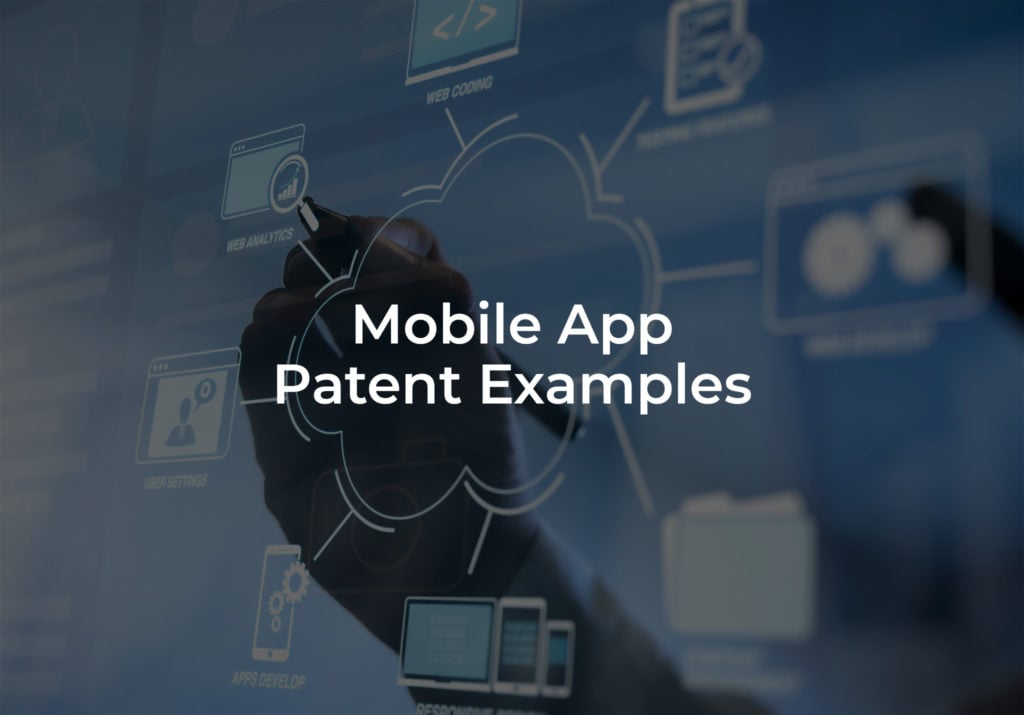The mobile app economy’s rapid growth is expected to continue with in-app spending projected to double by 2024 according to market forecasts by Sensor Tower. To add more fuel to the fire, the upcoming iOS 14 update will likely push developers to focus more on in-app purchases as a monetization strategy as it will become more and more difficult to monetize through user data and targeted ad placements.
For Big Tech and start-ups alike, protecting proprietary software like mobile apps is essential for getting a leg up on competitors to avoid theft and imitation. Protecting mobile apps can take various forms, some of which offer clear advantages over others. Limited protection against copy-cats is available through copyright but the strongest protection available to mobile app developers lies within patents.
How Patents Can Protect Your Mobile App
Processes the mobile app performs or steps the app executes may be protected by utility patents while additional features of mobile apps, such as graphical user interfaces, displays, or icons, may be protected with design patents. On some occasions, mobile apps may need multiple patents to cover distinct processes performed by the app which may be individually protected. In this article, we’ll review issued mobile app patent examples from Google, Zillow, and Facebook and provide clarity on how to identify patentable processes that power your mobile app.
Recently, Google patented an improved “drag-and-drop” feature that may be used in various mobile apps. Patenting a particular user-facing interface feature rather than the whole app in which it may be used is a strategy for protecting an invention that may be used in several mobile apps during the life of the patent. Patentable subject matter may be a feature within an app, rather than the app itself.

Zillow
Zillow’s U.S. 10,375,306 patent covers a method of collecting data (in the form of photos) to produce a panoramic view inside real estate properties. The patent itself claims the entire mobile app – everything from back-end computing to displaying the produced panoramic view in a GUI. Here, Zillow opted for securing protection on their entire mobile app.

In U.S. patent 9,578,011, Facebook patented a network architecture for implementing secure ID login to an application. Here, Facebook secured protection for a “back end” function that may be utilized in a variety of apps, but which may never be noticed an average consumer. Much like Google’s drag-and-drop patent, Facebook has opted for patenting a novel feature rather than an entire mobile app.

How Do You Patent A Mobile App?
Pursuing patent protection for your mobile app starts with finding a patent attorney or law firm that can meet the short and long-term goals for your mobile app and its growth. A skilled patent attorney will do more than have experience in software. Ideally, your patent attorney will have the knowledge to help you overcome legal issues that may arise during development, patent pursuit, and protecting your invention and your business.
Your patent attorney will help you with documenting the details of your invention. They will also assist you with taking a “snapshot” review of the software landscape. An understanding of what already exists in the marketplace can provide great insight into the novelty and non-obviousness of your invention – two key determinations of patentability. Your patent attorney will draft your patent application as well as help you explain inventiveness to the United States Patent and Trademark Office.
How Do You Identify Patentable Features?
A great yardstick for patentability is the inventor’s own knowledge of mobile apps and the technology behind them. Inventors working in mobile app development have the knowledge and experience to recognize new and inventive features and apps worth patenting. Together with a search of existing art performed by your patent attorney, you can map out existing technologies to help identify patentable features within your own mobile.
How Much Does It Cost To Patent A Mobile App?
The cost of securing a patent will vary depending on your attorney or law firm as well as the complexity of your invention. On average, mobile app non-provisional patent applications range from about $8,000 to $20,000 depending on complexity.
Can You Patent An App Idea?
For mobile apps in the ideation stage or still in development, provisional patent applications offer the chance to secure your place in line at the U.S. Patent & Trademark Office and establish “patent pending” status while you continue to perfect the app. Filing a provisional patent application while working towards a minimum viable product provides an opportunity for you to speak with a skilled patent attorney and develop a strategy for securing your invention.
Is It Worth Patenting An App?
Weighing the value of your software against the cost of securing a patent is essential for success. The value of a patent is a subjective question and will vary from inventor to inventor and business to business. Careful consideration should be given to how protecting a key process or feature of your app will affect your business. Remember that an issued patent provides the right to exclude others from making or using the app, the right to sue infringers of the patent, the right to license use or reproduction of the app, and the right to sell the patent outright – all effective means of gaining tremendous value from your patent.
Experienced Mobile App Patent Attorneys
Are you interested in exploring the patentability of your mobile app or would like to discuss what other intellectual property options are available to you? We’re here to help and we offer most of our services at a cost-effective fixed fee. Click here to schedule a free consultation.
2020-2024 Mobile Market Forecast. Sensortower.com. Published April 1, 2020.




